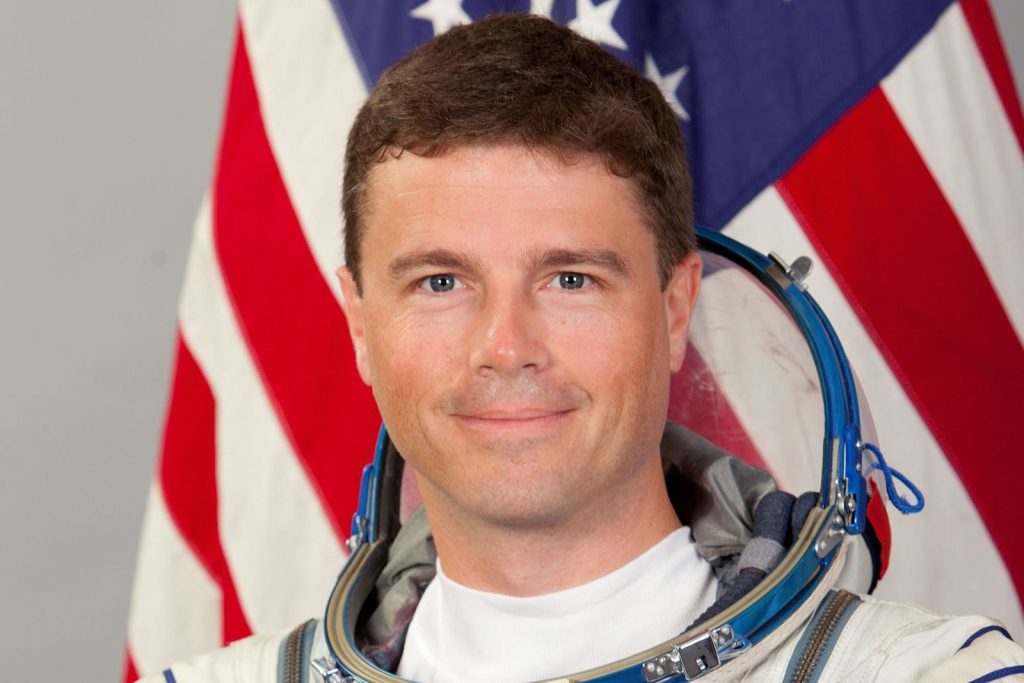
HOUSTON — Canadian astronaut Jeremy Hansen’s debut mission is a doozy: flying around the moon on the first crewed mission there in 50 years.
Jeremy Hansen was named Monday (April 3) as the Canadian astronaut aboard NASA’s Artemis 2 mission, which will visit our lunar neighbor in November 2024 or so. It’s a big moment for Canada, which gained its seat through a next-generation robotic arm called Canadarm3, which will support NASA’s moon-orbiting Gateway space station.
I met Hansen on Monday a few hours after he was brought on stage here at Ellington Field and announced to the rousing cheers of nearly the entire astronaut corps and an estimated guest list of 900. Let’s just say that’s not the usual way we find out people are about to fly. In a small boardroom at NASA’s Johnson Space Center, we agreed it was hard to begin to frame the opportunity for Canada and, naturally, for Hansen himself.
«For me, it’s a little bit hard to believe,» Hansen said of receiving the flight assignment. «I think it’s still sinking in, on various levels. It was really meaningful to talk to my family about it, to share that with my wife and children. To see how authentically excited the kids were for me was really meaningful. It really touched me.»
Hansen is a Royal Canadian Air Force fighter pilot who joined the astronaut corps in 2009, in the last years of the space shuttle program. His long wait was in large part due to Canada’s modest (yet well-respected) role in the International Space Station, where its robotics earn a mission about once every six years with current flight schedules.
Now that’s changing in a big way. Moon missions were not nearly this clear, nor nearly this close, when Hansen first joined. With the Artemis program now launching missions, however, Canada’s agreement to contribute Canadarm3 forms just one part of billions of dollars the CSA is putting into moon missions to generate opportunities for companies. Hansen’s seat is the leading edge of that effort, but many more will benefit from the work.
«It really isn’t about me,» Hansen said. «I feel a great sense of pride for Canada. That really hit me today. I felt it before, but today …» he gently pressed his fist upon his chest, against the name tag. «Ufff. It hit me really hard. It was so awesome to see NASA, the United States, showcasing Canada as part of this mission. It’s not as a gift, but because we bring real value.»
Canada has a few other people who have flown to space by other means, including NASA astronaut Drew Feustel: he’s a joint U.S. and Canadian citizen whose space adventures include servicing the Hubble Space Telescope and commanding the ISS. At Ellington, I squeezed into a corner of the venue with Feustel to talk about what this mission means for Canada.
«Jeremy has been around, supporting the astronaut office, for many, many years,» said Feustel, who recently became the first Canadian chief of NASA’s astronaut office (in an acting capacity).
Hansen, he said, «was instrumental in driving that partnership. He works very closely with the astronaut office to enable cooperation and inclusion in the agency.» For example, Hansen mentored the 2017 astronaut class for more than two years, serving as the first Canadian to manage the schedules for trainees.
Feustel paid tribute to NASA’s role as the lead agency for Artemis and to Canada’s niche spot as a robotics specialist, noting that each generation of Canadarm has been even better than the last. «It’s been amazing to watch Canada continue to participate,» said Feustel, who will be leaving NASA shortly.
He should know, as his crew operated Canadarm to capture Hubble for days of maintenance work before releasing it back into orbit. By sheer coincidence, Feustel’s mission, STS-125, captured Hubble on May 13, 2009, the very same day that Hansen was named as a potential future astronaut by CSA.
Hansen’s commander on Artemis 2, NASA astronaut Reid Wiseman, said everyone on the crew has given thought to the historic nature of what they’re hoping to achieve on the moon mission. The crew has been centering itself on ISS (a program in which all have participated in one way or another) to «carry that torch» and to forge new international relationships with Artemis, he said.
«Artemis 2 is all about Artemis,» Wiseman said in a NASA Johnson Space Center office, emphasizing his mission’s testbed role in getting ready for expanding lunar ventures. Hansen, for example, will be flying the Orion spacecraft to measure its capabilities against his decades of knowledge in the cockpit. In fact, every crew member will pilot the spacecraft at some point, Wiseman said. (NASA astronaut Victor Glover is the Artemis 2 mission pilot, however; Hansen and the fourth crewmate, Christina Hammock Koch, are mission specialists.)
NASA astronaut Joe Acaba, who now heads the astronaut office, also emphasized at Johnson that Hansen and his crew members were selected not only for individual talents, but also their ability to work together. He singled Hansen out as «a great pilot,» and said of the entire Artemis 2 crew, «I have no doubt about them as people.»
«Together,» Acaba added, «they make so much more than they are as individuals. That’s the power of diversity; that’s the way I look at it. We have a very diverse crew in their traits, in their education, with everything, and that’s what makes them so powerful.»